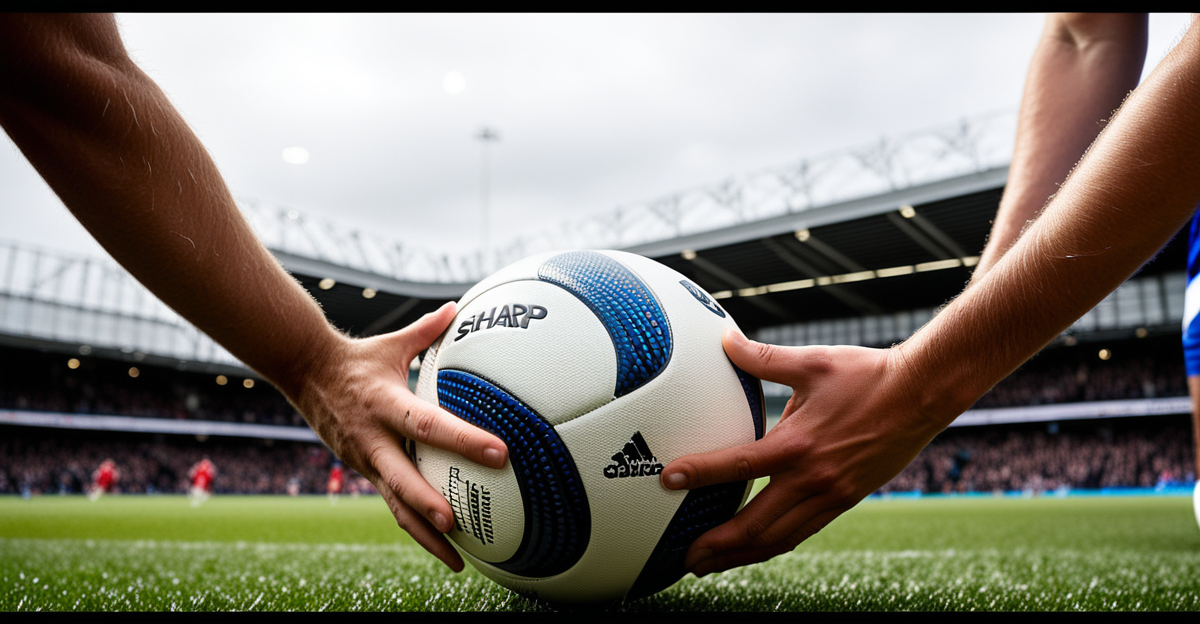The Unifying Power of Major UK Sports and Events
Major UK sports events like the FA Cup Final, Wimbledon, and Six Nations Rugby serve as powerful platforms for national unity and collective celebration. These occasions bring together diverse groups of fans and participants from different regions and backgrounds, creating a shared experience that transcends individual differences. The intensity of the crowd, the communal anticipation, and the exhilaration of victory foster a unique sense of belonging among spectators, uniting people under a common banner.
For instance, the FA Cup Final is more than a football match; it is a moment when communities across the UK pause collectively to witness a defining sporting event. Similarly, Wimbledon, with its rich history and tradition, symbolizes not just tennis excellence but also reflects broader national pride and British heritage. The Six Nations Rugby tournament is notable for uniting supporters from all corners of the nation, showcasing resilience and teamwork during the fiercely competitive matches.
Also to discover : What Are the Environmental Impacts of UK Sporting Events?
A significant element contributing to this unity is the representation of national symbols and traditions throughout sports ceremonies. From anthem performances to the display of flags, these rituals reinforce the collective identity and evoke emotional connections to the nation. The diversity of fans, spanning various ethnicities, ages, and social classes, converges in stadiums and living rooms, highlighting how UK sports act as a social glue and reinforce shared values despite regional and cultural plurality.
In summary, major UK sports events are more than entertainment; they are vital cultural fixtures that promote national unity by connecting people across divisions, celebrating a common identity, and nurturing a spirit of togetherness.
Also read : What Are the Historical Moments That Defined UK Sports?
Historical and Contemporary Moments Demonstrating National Cohesion
Major historic sports moments in the UK have repeatedly acted as catalysts for social cohesion and widespread celebrations of national pride. England’s 1966 World Cup victory stands as a defining moment, when the entire nation united in joy, temporarily setting aside regional and cultural differences. This event not only marked a peak in football history but also strengthened the collective identity of the British people on a scale rarely seen before or since.
More recently, the London 2012 Olympics showcased the UK’s capacity to come together amid complex societal challenges. The Games fostered inclusive national celebrations, emphasizing shared achievements and community spirit. This event reinforced the notion that sports engage people across social and geographical boundaries, promoting a sense of unity in diversity.
The historical significance of these milestones extends beyond the events themselves. They become embedded in British cultural memory, continuously recalled in national discourse and media. Such sporting achievements embody resilience and collective effort, values deeply connected to the UK’s self-image and pride. Over time, they help craft a narrative of unity that transcends everyday divisions, reminding citizens of their shared history and potential for solidarity.
In sum, both historic and contemporary sporting events function as powerful anchors for national pride and social cohesion, fostering a collective narrative that binds people together across generations and regions.
Research and Expert Perspectives on Sports and National Identity
Academic research consistently highlights the central role of UK sports in shaping and reinforcing national identity. Experts in sports sociology emphasize that shared engagement with major sporting events fosters a sense of belonging that transcends everyday regional and cultural differences within the UK. Studies demonstrate that participation in or support for national teams and events galvanizes collective identity by providing common narratives and symbols that resonate widely.
One key expert opinion underlines how sports serve as a cultural language, communicating values of resilience, fair play, and pride. By rallying people around iconic moments and athletes, sports create a symbolic framework for expressing national unity rooted in both historical continuity and contemporary celebration. This helps to mitigate regional fragmentation by offering a unifying social experience.
Research findings also reveal that public perceptions strongly associate UK sports with national cohesion. Surveys show that during major competitions such as the FA Cup Final or the Six Nations Rugby tournament, individuals report heightened feelings of connection to the broader British community. This effect is amplified by rituals like anthem singing and the display of national emblems, which experts argue solidify emotional bonds between fans and their collective identity.
In sociological terms, these findings highlight that sports can operate as an integrative force addressing social divisions. While regional affiliations and identities remain robust, expert analyses suggest that sports create a layered identity framework where local loyalties coexist with, and are enhanced by, a shared national pride. This nuanced understanding positions UK sports as a powerful sphere where diversity converges into collective celebration and social cohesion.
The Role of Sports in Social Cohesion and Community Building
Major UK sports are more than just competitive events; they function as dynamic catalysts for social cohesion and community engagement across diverse populations. By bringing together individuals from varied backgrounds in shared spaces, both physical and virtual, sports foster a sense of inclusion that transcends ethnicity, class, and geography. This inclusive nature is especially evident in grassroots and local sports initiatives where people actively participate and collaborate, knitting tighter community bonds.
Grassroots sports clubs often serve as hubs for interaction, creating environments where personal relationships develop beyond traditional social divides. These local organizations encourage cross-cultural communication, promoting understanding and cooperation among participants. Through team activities and shared goals, players learn values like respect, teamwork, and collective responsibility, which effectively translate into wider societal cohesion.
In addition, major clubs and sporting associations play a pivotal role in shaping community identity. Their outreach programs frequently target marginalized or underserved groups, using sport as a tool to foster belonging and promote healthy lifestyles. These institutions serve as focal points where fans and local residents unite, experiencing a collective identity that balances regional pride with national belonging. Such engagement cultivates social capital and strengthens communal ties, reinforcing sports as integral to community building across the UK.
Challenges and Limitations in Achieving Unity Through Sports
While UK sports often promote national unity, several challenges and limitations temper their unifying potential. Rivalries between teams and regions can escalate into sectarianism or exclusion, undermining the spirit of collective identity. For example, intense local allegiances sometimes foster hostility rather than cohesion, creating divides that sports aim to bridge. Such tensions are especially visible in football, where historic rivalries have occasionally provoked negative behaviors that challenge the ideal of social harmony.
Regional identities within the UK also present a complex backdrop. These local loyalties sometimes compete with broader national unity, as fans prioritize regional pride over collective identity. This dynamic complicates the notion that sports automatically generate unity, revealing a layered social fabric where allegiance shifts between local and national levels depending on context. The persistence of cultural and political differences among regions may inhibit the full integration of sports fans into a shared national narrative.
Moreover, some critics argue that sports unity is selective and incomplete, benefiting mostly dominant groups while marginalizing others. Issues such as gender inequality, racial exclusion, or the underrepresentation of certain communities highlight that sports do not always offer an inclusive platform. The ideal of collective identity through UK sports must be critically examined against these realities, stressing that while sports can unite, they are not a panacea for deeper societal divisions.
In summary, the challenges in achieving lasting social cohesion through sports reflect the complexities of British society itself. Rather than a straightforward solution, sports provide a nuanced arena where unity coexists with fragmentation, urging ongoing efforts to overcome exclusion and promote genuinely inclusive collective identities.








